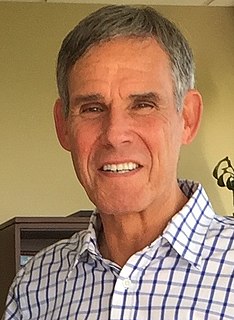A Quote by Anne Wojcicki
FDA clearance is an important step on the path towards getting genetic information integrated with routine medical care.
Quote Topics
Related Quotes
In medical school, students are immersed in the realm of medical ethics. It's where new doctors study, learn right and wrong, ask tough questions, and discuss things like end of life care, genetic testing, and patients' rights. In lots of ways, it's the most important part of being a compassionate and competent doctor.
Now, it is sometimes said that medical care is too important to be left to the market, and that it is immoral to profit from the illnesses of others. I say medical care is too important to be left to the failed central plans of the political class. And as for profiting from providing medical care, we can never be reminded enough that in a free society, a profit is a signal that valuable services are being rendered to people on a voluntary basis.
The field of U.S. cancer care is organized around a medical monopoly that ensures a continuous flow of money to the pharmaceutical companies, medical technology firms, research institutes, and government agencies such as the Food and Drug Administration (FDA) and the National Cancer Institute (NCI) and quasi-public organizations such as the American Cancer Society (ACS).
On the information technology side, health care is still behind other industries. There needs to be a real push to create better electronic health records, more inter-operability amongst various types of electronic systems and cybersecurity is becoming a huge deal in in health care. Health care records are highly sought after by virtue of the fact that not only do you have somebody's person financial information, you also have their person medical information.
It is taken for granted that workers should receive their pay partly in kind, in the form of medical care provided by the employer. How come? Why single out medical care? Surely food is no less essential to life than medical care. Why is it not at least as logical for workers to be required to buy their food at the company store as to be required to buy their medical care at the company store?
With the increasingly important role of intelligent machines in all phases of our lives--military, medical, economic and financial, political--it is odd to keep reading articles with titles such as Whatever Happened to Artificial Intelligence? This is a phenomenon that Turing had predicted: that machine intelligence would become so pervasive, so comfortable, and so well integrated into our information-based economy that people would fail even to notice it.
When the FDA forces an old drug off the market, patients have very little say in the matter. Patients have even less of a say when the FDA chooses not to approve a new drug. Instead, we are supposed to rely on the FDA's judgment and be grateful. But can the FDA really make a choice that is appropriate for everyone? Of course not.



































